Search results for :
Online MBA
Penn State Online MBA Program Structure
The program begins with the five-day Orientation Residency in University Park, Pennsylvania, helping students meet face-to-face with faculty and classmates, attend workshops and career services opportunities, and network with alumni.
The entirety of the program consists of 48 credits, 39 of which are General Management courses, with nine concentration course work credits. The schedule of programs is flexible, allowing students to take classes during the week on their own time. Starting in spring 2020, Penn State Online MBA students will have the opportunity to take part in the Global Immersion trip alongside fellow Residential and Executive MBAs.
The program can be completed in as little as two years, or as long as eight years.
Curriculum
The 48-credit program, according to the school, is structured around three separate principles: “Integration, Collaboration, and Engagement.”
After completing the 39-credits worth of General Management courses, students are given multiple concentration options (dependent upon which of the General Management courses they elect to complete), including: accounting; business analytics; finance; and more.
Online MBA Rankings
• U.S. News & World Report: 6 (tie)
Class Profile
The average class size for the Smeal Online MBA program is 31, with 355 total students enrolled in the program. The average age of enrolled students is 33. About 66.8 percent of the entire Online MBA student body is male, with 33.2 percent female students, 21 percent U.S. minority students, and 4 percent international students.
These students earned an average GMAT score of 577.
Tuition, Scholarships, and Financial Aid
Tuition cost for the Penn State Online MBA at the Smeal College of Business is $1,185 per credit. Over 48 credits, the total comes to $56,880.
Applicants to the program are eligible for FAFSA and unemployed tuition assistance. In addition, military service members are eligible for certain benefits to help fund tuition payments, of which include: the GI Bill and grant-in-ai; ROTC aid; and Yellow Ribbon programs.
Admissions
For enrollment in the Penn State Online MBA program at the Smeal College of Business, applicants must submit the following:
• An online application
• GMAT/GRE Scores (Waiver option available for applicants with Ph.D., M.D., or D.O. degrees)
• Resume
• Transcripts
• Two references
• TOEFL or IELTS scores (for non-native English speaking international applicants)
• Visa materials (international applicants)
• A $65 application fee
In addition, applicants must submit one essay response. The one-page document includes six short-answer essay questions (50-100 words) on the following prompts:
– “What are your short-term and long-term career goals?”
– “What will you contribute to your classmates and the program? Why should we admit you?”
– “Tell us about your leadership style and provide a supporting example.”
– “Tell us about an unsuccessful team experience, the role you played in it, and what you learned.”
– “Give an example of a time in which you received professional constructive criticism. What was it, who did it come from, and how did you apply it going forward?”
– “Explain how you are prepared/preparing to succeed in a quantitatively rigorous graduate program.”
Application deadlines are as follows:
| Deadlines for Fall 2022 Intake | Submit Your Application By | Expect a Decision By |
|---|---|---|
| 1st Round | October 1 | December 1 |
| 2nd Round | December 1 | February 1 |
| 3rd Round | February 1 | April 1 |
| 4th Round | April 1 | June 1 |
5 Questions With Imran Kanga, Rotman’s MBA Director of Admissions
In our latest installment of the MetroMBA “5 Questions” series, we speak with Imran Kanga, Director of Recruitment & Admissions of the full-time MBA program at the Toronto Rotman School of Management. Kanga discusses what students should know before applying and the culture of the program.
What type of MBA student flourishes at Rotman?

Imran Kanga, Director of Recruitment & Admissions of the full-time MBA program.
“Students who flourish in the Rotman full-time MBA program are highly driven and motivated individuals who have demonstrated leadership potential and academic excellence in their prior work and education. Our students also demonstrate excellent communication and interpersonal skills and thrive in a team environment, which not only is a significant part of the program but also sets them up for success in the workplace after graduation.”
What should prospective students know about the Rotman MBA program before they apply/start?
“The Rotman MBA program is a big commitment, both in terms of time and money. I would encourage prospective students, before they apply or start the program, to thoroughly research the program, the university, the city, and the career opportunities that potentially await them. It is important for them to speak to faculty, alumni, our career coaches, current students, and also the admissions team to understand what the requirements are and what they can expect from the program.
The FT MBA program is extremely rigorous and demanding, but it is also a very rewarding experience, and students need to be prepared before starting the program.”
What makes Rotman stand out amidst other Canadian MBA programs?
“There are so many factors that distinguish the Rotman MBA from other Canadian programs. To focus on a few…
- Being part of Canada’s largest and top-ranked University, Rotman MBA students enjoy the benefits of not only all the resources that the business school offers but also the University of Toronto as a whole. This includes being part of an extended global alumni network and a strong brand that is globally recognized.
- Our location in the heart of the largest city in Canada gives our students unfettered access to the largest business network in the country.
- Rotman also has some unique labs such as the Creative Destruction Lab, which supports startups in technology and disruptive innovation to scale and also gives our students the opportunity to work with these companies. Our one of a kind Self-Development Lab uses advanced technology and analytics to help students improve their soft skills such as communication, negotiation and presentation skills.”
How would you describe the culture of Toronto Rotman?
“The culture at Rotman is very much student success driven. Faculty, staff, alumni, and various other stakeholders work closely with students throughout their MBA journey to ensure that they are set up for success both during and after the MBA program.
At Rotman, we are also extremely committed to diversity and inclusion. Our students are extremely diverse, coming from all over the world and have different education and work backgrounds, which fosters a culture of knowledge sharing, support, and collaboration.
Our Dean Tiff Macklem is focused on continuous improvement, innovation, thought leadership, and research excellence, which is also central to Rotman’s culture.”
Where is your favorite place to visit in Toronto? Why?
“As a foodie, my favorite area of Toronto is the downtown core, which has a wide variety of restaurants and cuisines from all over the world, owing to the city’s incredibly diverse population.”
Check Out Some New MBA Jobs at These Global Finance Firms
One of the most lucrative careers an MBA can pursue is in financial services. Newer MBA jobs in this field include risk management specialists, financial analysts and asset managers, as well as roles in related emerging sub-sectors like FinTech. For MBAs looking to break into this field, check out our list of five exciting new MBA jobs at these top financial services firms:
Continue reading…
Gig Jobs vs. Full-Time and Revenue Sharing – Boston News
Let’s explore some of the most interesting stories that have emerged from Boston business schools this week.
Should It Be a Gig or a Job? – Questrom School of Business News
New research from Boston University Questrom School of Business‘ Associate Professor Andrei Hagiu and National University of Singapore’s Julian Wright examines how firms classify an employee versus an independent contractor, and how this relates to revenue sharing.
Hagiu notes that this classification greatly depends on the amount of decision-making power that firms cede to workers—and that appropriate revenue sharing should follow suit.
“In many cases, the share of variable revenue that is retained by workers is a good proxy for whether they can be considered independent contractors or regular employees,” says Hagiu.
The research notes:
“Firms that wish to classify their workers as independent contractors and provide a higher share of transferable decisions to workers should be paying them at least half of variable revenues. Firms that pay less than half of variable revenues to a worker should likely employ the worker, but provide a lower share of transferable decisions to workers.”
You can find out more from the research here.
Your Acquired Hires are Leaving and Here’s Why – MIT Sloan Ideas That Matter
Large companies often acquire startups in order to eliminate competition, with the added benefit of gaining skilled and innovative workers. Unfortunately, new research from MIT Sloan doctoral candidate Daniel Kim shows that this “acqui-hiring” strategy is not as effective as some think.
According to Kim’s paper, “Predictable Exodus: Startup Acquisitions and Employee Departures,” within the first year of a company’s acquisition, 33 percent of acquired workers left, compared to 12 percent of regular hires.
While those percentages tend to level off over time, in the three-year window Kim studied, acquired workers were 15 percent more likely to leave than new hires. This exodus is largely due to an organizational mismatch and new hires’ lack of agency.
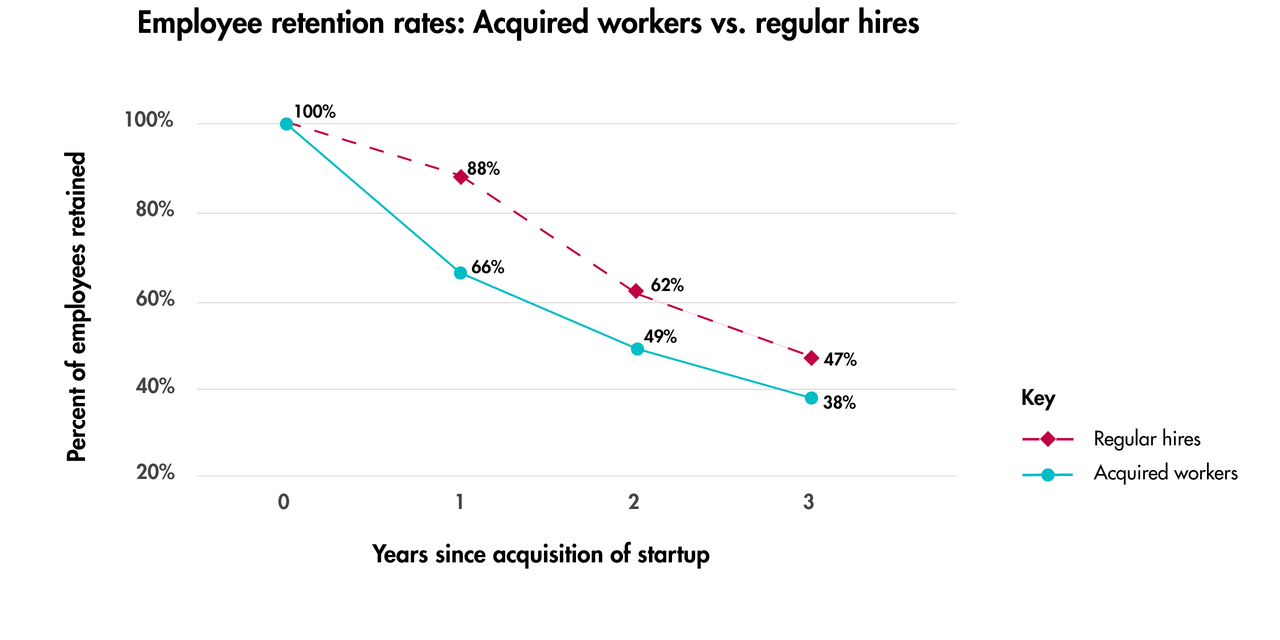
Employment retention data, courtesy of Meredith Somers at MIT Sloan.
“People who work at startups join a startup for a reason,” Kim says. “Primarily they want to be in a very entrepreneurial, scrappy organization. But once they get acquired by a big firm, that is in direct opposition with the preferences that they have.”
You can read more about Kim’s research here.
The Accidental Restaurateur – Carroll School of News
Joe Essa, BC Carroll Alum ‘79, told the Carroll School of Business Blog that it was “a bit of a fluke” that he ended up becoming a successful restaurateur and ultimately the President and CEO of Wolfgang Puck Worldwide, overseeing more than 50 eateries across the nation along with licensing Puck’s cookbooks, canned soup, and other consumer products.
In 1983, when tending to his ill father in Greensboro, Essa was approached by a real estate developer friend, who needed a restaurant to complete a shopping center project. Café Pasta, Greensboro’s first casual Italian restaurant, was born.
Essa refers to the curriculum he learned at Carroll to keep him on track: “I always drew upon my accounting training … I knew you had to end up with some money in the bank! So I was very disciplined in that regard from day one.”
Eventually Essa sold his share of Café Pasta and came to work with Wolfgang Puck in 1999. He spoke passionately about his eclectic role within the organization.
“It’s not just one kind of dining, it’s many different kinds of restaurants, different cuisine. And then looking into the leases, license agreements, and marketing and promotion for all those businesses. And the people you get to meet along the way are fascinating. You get up every day and it’s different, it’s exciting, and it’s humbling. I just count my blessings.”
Click here to find out more about Essa’s life and career.
5 Questions With UC Davis MBA Admissions Senior Director Andrea Shaw
In our latest installment of the MetroMBA “5 Questions” series, we speak with Andrea Shaw, Senior Director of Admissions at the UC Davis Graduate School of Management. Shaw discusses the tight-knit culture of the UC Davis MBA program, what students can expect, and what qualities define the program.
How does UC Davis help MBA applicants who don’t come from a traditional business or quantitative background?
“Students come to us from across industries, functions, and from around the world. We pride ourselves on being a tight-knit and collaborative community where conversations directly happen between faculty, staff, and students. Our curriculum also allows students to choose between many different career paths especially given the connections we have across other UC Davis schools.
For students coming from a non-business background or who are nervous about starting, we’re a school that really fits. Many schools have 600 students in a full-time program. We only have 50 students. That allows us to personalize the journey of each student.
Also, UC Davis doesn’t believe in just throwing our students into the program. We get to know our students and their needs—what they’re looking for, their strengths, weaknesses, etc. Part of that knowledge comes from our highly robust orientation where we spend almost a month before school starts to really engage with our students.
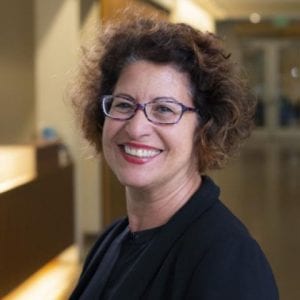
Andrea Shaw, Senior Director of UC Davis Graduate School of Management Admissions
During orientation, we spend a tremendous amount of time learning about our MBA class. There’s a significant career focus with discussion topics focused on networking, resume building, LinkedIn, etc. However, what the orientation is most known for is helping our students understand their emotional intelligence and develop their story through exercises and experiential learning.
Students have said in surveys that it’s the orientation that solidifies that they’ve made the right decision to come here. Those first few weeks are critical for setting them up for success.”
What type of culture defines UC Davis?
“The two words that continually come up from students, alumni, and faculty are “kind and compassionate.” We are driven toward success, but nice. It’s the idea of compassionate leadership, which research has shown to be necessary for true business growth. We even have an entire series that students can take to develop these skills, including awareness of themselves and others. Kindness and compassion are woven into every aspect of our culture, starting at the top with our dean.
Our culture is also defined by our location in a college town instead of a city. I love Davis as a city, community, and a place to go to college. It’s safe, comfortable, and all the energy revolves around the college.
We’re also really focused on what we do best as a university—biotechnology, sustainability, agriculture. Those sorts of segments and industries are very tied to our culture, university, and research. So, someone interested in Wall Street finance might not fit as well as someone interested in biotech.
Finally, because we’re a small community, you can really stand out. There are not a lot of politics to hold you back. You can get very involved, and there are fewer people vying for the same positions, so you can do as much as you want. This is highly beneficial for students who have a particular passion that they want to explore. For example, I know an MBA student who started a Women in Leadership organization because that was something she was passionate about, and it happened in a few conversations.”
Can you describe the qualities that UC Davis students possess?
“Other than the typical GMAT scores, GPA, and years of work experience, we look for applicants who know what they want to do with their MBA. Candidates should have a focus for the post-MBA career while also remaining open-minded about new opportunities. After all, an MBA is meant to be a transformative experience.
We also look for highly competent individuals who are professional in their verbal and written communications with us. We pride ourselves on being able to find jobs for all our students, so there’s a benchmark we look for—well-rounded students that have many different qualities. Going back to this idea of collaborative and kind, we look for candidates who are good team players and who see the value of working in groups because we have a lot of group work.
Finally, we look holistically at the class and how everyone will learn from each other. We look for a diverse class with students from a wide variety of backgrounds and industries. Everyone should be unique while still representing the essential qualities we love: kindness, compassion, and collaboration.”
If you could give one piece of advice to an MBA applicant interested in UC Davis, what would it be?
“Confidence! So much of what MBAs lack is confidence. The problem is that if you don’t think you can succeed, you won’t.
When you fill out your application and come in for your interview, we want confidence. Confidence is doing your research (knowing UC Davis), knowing who you are, and knowing your story. It’s also about being authentic. All of that leads to being confident in who you are and what you want. That will come across with us; it will come across anywhere.

“Confidence! So much of what MBAs lack is confidence. The problem is that if you don’t think you can succeed, you won’t,” Shaw says.
Remember, first impressions matter. That’s where that confidence helps too. If you come into a situation confidently, those first impressions are strong.”
What is your favorite San Francisco-focused business blog/website?
“I would say for applicants who are looking at schools in the Davis area, Metro-Edge.org is an excellent website. This is a website for young professionals in the Sacramento area. You’ll find events, gatherings, news, and more. It’s really focused on change and responsibility, and that’s great.
I also have to give a little plug to all of our social media accounts. Follow us on LinkedIn, Twitter, and Facebook for the latest news and insights. We also have MBA Showcase days coming up on January 26, February 9, and Feb 23.”
TEST PAGE: Best MBA in Management in the US
The City Lawyers
We care about the citizens of Seattle, and take pride in serving them through good and bad times. We have a record breaking amount of won cases, and we can help you as well.
Criminal Law
If you have received a summons from the police, then you need legal help and advice from our Criminal Law department. Get in contact and we will work out a deal.
Civil Law
We deal with many civil law cases here at The City Lawyers. If you have non-criminal legal issues, our Civil Law lawyers can help you out. Call us for an appointment.
Family Law
Here at The City Lawyers, we specialize in cases under the Family Law section. Delicate divorce matters take up around 96% of all our annual cases.
Meet The Team

Senior Partner
Danielle Martinez

Senior Partner
Vincent Rosewood

Senior Partner
Elisabeth Franklin
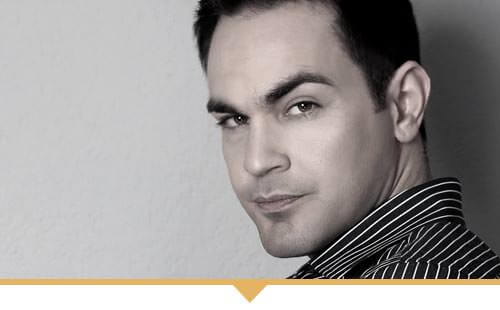
Partner
Robert Armstrong

Partner
Liza Keystone
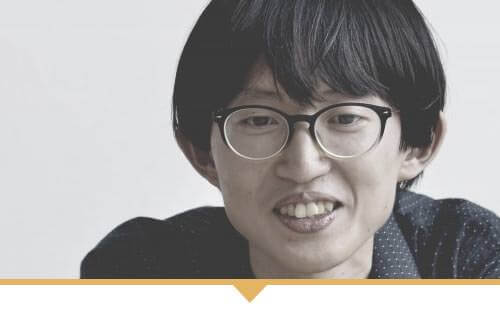
Internship
Leroy Anderson
Philosophy
We believe all legal cases are equally important, especially for the individual client.
Our company is needed in both good and bad situations in life, and we do whatever we can to make all cases a good experience no matter the subject. We look at our clients as people with genuine problems and do not measure their wallet before we look at their case.
Why Us?
There are many law firms, but our numbers prove we have a good thing going here at The City Lawyers. We respect our clients and they respect us, and that is what sets our company apart from others.
If you have questions regarding our company, you should give us a call. We will do everything possible to make sure we are the right fit for your case.
“It is forbidden to kill; therefore all murderers are punished unless they kill in large numbers and to the sound of trumpets.”
― Voltaire
Frequently Asked Questions
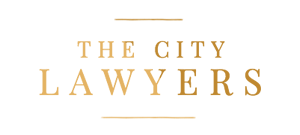
909 Terra Street, Seattle, WA 98161
help@thezitylawyerz.com
Tel: 701-946-7464
Top New Consulting MBA Jobs at Non-Big Four Firms
While it’s great to aim for the stars, not every MBA can and will land a job at one of the Big Four firms of KPMG, Ernst & Young, Deloitte, and PricewaterCoopers. However, there are plenty of other new MBA jobs available at other big-name firms. Here’s a look at some of the best new MBA jobs open at companies like Accenture, Wolters Kluwer, BCG, and more. Continue reading…
Hybrid MBA
The College of New Jersey School of Business Hybrid MBA Program Structure
The MBA program is offered in a hybrid format (online and face-to-face), which will allow students to enroll in the MBA program without disrupting their personal and professional obligations.
Students meet in class for eight hours on Saturdays, six times in the fall and spring, plus four times in the summer. When not meeting face-to-face, students will complete their coursework online. Winter courses will be offered 100 percent online.
Curriculum
The Master of Business Administration degree requires 42 academic credits (approximately 14 courses). The lockstep curriculum is designed to be completed in two years. The T-Style curriculum delivers a focused specialization followed by the MBA Core. Specializations include Data Analytics, Finance, and Strategy, Innovation and Leadership.
Tuition, Scholarships, and Financial Aid
The College of New Jersey provides a high quality education at a lower than average cost than other schools of similar quality. The approximate total cost of the MBA program is $46,000.
Working professionals are encouraged to review their company benefits as many employers offer tuition reimbursement benefits. Additionally, students can apply for FAFSA or private loans.
Admissions
The following are required in order to apply to the TCNJ MBA program:
• Essay – should be no more than 500 words, detailing your interest in the MBA program and how it fits into your career goals.
• An earned bachelor’s degree from an accredited college or university; Official transcripts
• Two years or more of professional full-time work experience; Current resume
• 1 letter of recommendation (current or former supervisor)
• GMAT or GRE exam (waivers available, dependent on academic and professional background)
• Additional documents needed from international applicants seeking to study in the U.S. (TOEFL, etc.)
• $75 application fee
Students who graduated with a cumulative GPA of 3.5 or above and demonstrated quantitative competencies or have completed an advanced degree may be exempt from taking the required GMAT or GRE. Additionally, the GMAT or GRE exam may be waived for candidates with eight or more years of professional full-time work experience along with a cumulative GPA of 3.0 or above. Waivers will be considered case-by-case as the MBA Director grants or denies waivers based on their assessment of the applicant’s probability of success. Waiver requests should be sent to the MBA Director at mba@tcnj.edu.
Application deadlines are as follows:
Priority application deadlines are December 1, February 1, and April 1.
Applications will be reviewed on a rolling basis after April 1.
The MBA program admits students for fall semester start only.
Let Introverts be Introverts, Says Stevens Guest Speaker – New York News
Let’s explore some of the most interesting stories that have emerged from New York business schools this week.
To Be Successful, Organizations Should Let Introverts Be Introverts, Says Stevens Speaker – Stevens Institute of Technology School of Business News
Introverts make up a third to a half of our workforce, and yet the majority of workplaces are built for extroverts—from open floor plans, bustling activity, to meetings dominated by who can be most assertive. These environments are not conducive to introverts, who are most productive when left alone to work and create.
Susan Cain, speaker at the Stevens Institute of Technology’s Excellence Through Diversity Lecture Series, shares how important it is to create that space for different work styles.
“There is no such thing as a one-size-fits-all environment. We need to be thinking day by day, team by team, office design by office design, how we can set things up so that there are varying levels of stimulation.”
Cain adds, “There have been a whole bunch of studies that have come out over the years showing that most people believe that introverts make inferior leaders and are passed over for leadership positions. On the other hand, there is another set of studies showing that introverts in leadership positions often deliver out-sized performance returns.”
You can read more about Cain’s lecture series event here.
Faster Internet Fuels Job Growth in Africa – Columbia Business School News
New research from Columbia Business School‘s Jonas Hjort and Uppsala’s Jonas Poulsen finds that the expansion of fast Internet in Africa has created jobs, increased employment rates, and greatly benefited populations with lower levels of education.
Professor Hjort writes, “These findings shed light on how modern information and communications technology can affect employment rates, structural change, job inequality, and firm growth in the poorest region of the world.”
“Our results imply that faster Internet allows firms to create (or retain) a lot of positions that otherwise would not be tenable in Africa,” adding that “access to information and communication can help give people with lower education a more secure foothold on the economic ladder, and improve living standards.”
You can read more about the growth here.
Impact Investing is About to Become More Mainstream Than Ever – Gabelli Connect
Last month, 350 guests gathered for Fordham’s inaugural Impact Investment Convening to discuss investing for social and environmental good.
Blended finance projects are already cited by the United States, Canada, Netherlands, and the Nordic countries as “proof that private capital could answer the problems that, historically, government couldn’t.” Investors are successfully driving interest in socially responsible investing and there is great potential to reach untapped markets.
The Convening was organized by Peter Lupoff, MBA ’86, Gabelli executive-in-residence and Center for Research in Contemporary Finance fellow. Lupoff explains, “What’s more is that the greatest transition in wealth is about to occur, from boomers to millennials. They care about how their money is spent, socially and environmentally, so it makes good sense for the traditional markets to embrace this – the capital will demand it.”
Keynote speaker Danielle Kayembe, CEO and founder of GreyFire Impact, points out, “The gender divide in consumer products and industry at large reflects a huge untapped area. Some estimates say women drive up to 85 percent of consumer spending in the United States, and, globally, women control some $36 trillion in total wealth.”
You can read more about impact investing here.
4 MBA Trends to Look Out For In 2019
Recently, we discussed about most important numbers of the previous year. MBA application rates were declining, average salaries are on the upswing, gender equity took major steps, technology and products/services jobs are jumping, and GMAT scores continue to rise. But what does all this mean for 2019?
Are there any MBA trends to look out for in 2019 and what can you expect? Continue reading…
Real Humans of the Rutgers Business School
When considering earning an MBA, a few priorities tend to stick out. Cost, career opportunities, flexibility, and educational value are all obvious sticking points. However, another crucial feature should matter more when it comes time to decide where you’ll go: return on investment.
The Rutgers Business School in New Brunswick and Newark, New Jersey, isn’t just the premiere MBA option in the Garden State (ranked 44th overall by U.S. News & World Report): it’s among the best return on investment opportunities you can find anywhere.
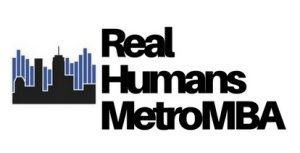
According to the Financial Times, which also ranks RBS among the best business schools in the world, the average salary jump for MBA grads is a staggering 112 percent. This return on investment figure bests some of the most recognizable programs in the world, including Dartmouth’s Tuck School of Business, the London Business School, and New York University’s Stern School of Business.
Part of the reason for such a pronounced ROI is, of course, the school’s ideal proximity to the New York City metro, offering students extensive opportunity advantages that other prestigious institutions struggle to compare to. Other provincial factors in the eye-popping ROI are the lauded areas of focus, including supply chain management (ranked 6th best in the country by U.S. News & World Report). When factored together, it may not be surprising to find a lot of diverse backgrounds studying at Rutgers Business School.
When talking with several current students, the litany of non-traditional students tends to stand out, including a radio DJ tired of an exhaustive industry, a theater vet, a former fifth grade music teacher looking to break out in an entirely new field, and more. Read on to see their stories and what the future may hold for life after an MBA.
Wage Transparency, Rideshare Payouts, and More – New York News
Let’s explore some of the most interesting stories that have emerged from New York business schools this week.
Wage Transparency Works: Reduces Gender Pay Gap by 7 Percent – Columbia Business School
New joint-research from members of the Columbia Business School, INSEAD, the University of Copenhagen, University of North Carolina Kenan-Flagler Business School, and Cornell’s SC Johnson College of Business finds that wage transparency can help close the gender pay gap
Columbia’s Daniel Wolfenzon and his co-authors examined the effect of a 2006 requirement for Danish companies to report on gender pay gaps.
“What surprised us the most was the way in which this wage gap closed. Women’s wages did not increase at a faster rate in treatment firms as we were expecting. Instead, we find that men’s wages in treatment firms grew slower relative to men’s wages in control firms. As a result, the total wage bill grew slower in firms that were required to report wage segregated statistics,” Wolfenzon says.
“What is interesting is that the law has unintended consequences on women’s ability to climb up the corporate ladder and their willingness to join the labor market. When firms adopt fairer wage practices towards women, this can have positive effects on women’s labor market outcomes that go well beyond pay gaps,” UNC Kenan-Flagler Assistant Professor of Finance Elena Simintzi says.
You can learn more about the wage transparency research here.
Market-Driven Drivers: Dynamic Payout Ratio Means More Money, Less Wait – Binghamton School of Management
With the rise of on-demand services from ridesharing, we have become accustomed to getting what we want, when we want it. Binghamton University School of Management Assistant Professor of Supply Chain Management Jiaru Bai knows the secret to discovering how to handle impatient customers: data.
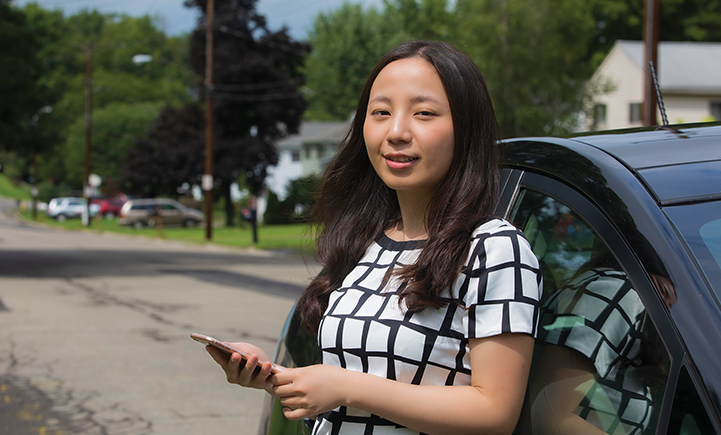
“Having a dynamic payout ratio almost always performs better than a fixed payout ratio, according to our model and data analysis,” says Binghamton Assistant Professor Jiaru Bai / Photo via Jonathan Cohen
Bai and her fellow researchers analyzed rides from Didi, China’s largest on-demand ride-hailing service platform. They found that the optimal solution is to flexibly determine the payout percentage, rather than adhere to a rigid, fixed rate.
“Basically, when demand is high, providers should get paid a higher percentage, and when demand is low, providers should get paid a lower percentage. Having a dynamic payout ratio almost always performs better than a fixed payout ratio, according to our model and data analysis, and it leads to benefits for all involved,” Bai says.
You can read more about the ridesharing research here.
New Research Shows U.S. Consumers Prefer Brands that Support Refugees – NYU Stern Experience News & Events
According to a new report titled “How Helping Refugees Helps Brands” from the NYU Stern School of Business and the Tent Partnership for Refugees, American consumers are more likely to purchase from brands that support refugees. This includes brands that hire refugees, deliver services to refugees, invest in refugee entrepreneurs, and source from refugee businesses.
“This report shows that consumers will reward brands that support refugees,” says Gideon Maltz, Executive Director of the Tent Partnership for Refugees.
“In a crowded marketplace, brands that integrate refugees into their business can distinguish themselves from their competitors, especially among millennials. This is a clear demonstration that brands can do well by doing good.”
The Tent Partnership for Refugees, founded by Chobani’s Hamdi Ulukaya, is mobilizing the private sector to improve the lives and livelihoods of more than 25 million refugees. Ulukaya launched Tent with the hope that the private sector is uniquely positioned to address the global refugee crisis, mobilizing networks, resources, innovation, and the entrepreneurial spirit of the business community. There are over 100 companies in the Tent Partnership supporting refugees across 34 countries, which can be found here.
Professor Tülin Erdem, co-author of the report and chair of NYU Stern’s Marketing Department adds, “It impacts brand image and consumer brand purchase behavior positively.’
“This is consistent with current consumer (especially the millennial consumer) preferences for brands that take a strong stance for social issues and consider the welfare on multiple stakeholders, including the society at large.”
The full report can be accessed online. For more, check out the recent NYU Stern article here.
MIT Sloan Experts Talk Business in 2019
What can you expect from the business world in 2019? Professors and lecturers from MIT Sloan discuss seven businesses to keep an eye on in the New Year. Here’s what they had to say.
Check Out New MBA Jobs at Walmart, Nike, and General Motors Before the New Year
Are you trying to get one more job application out before the end of 2018? Check out these exciting new MBA jobs at Walmart, Nike, General Motors, Johnson & Johnson and Procter & Gamble, and get those applications in. Soon you’ll be celebrating a new job as well as the new year! Continue reading…
5 Questions With the UC San Diego Director of Graduate Recruitment & Admissions
Sponsored Content
In our latest installment of the MetroMBA “5 Questions” series, we speak with Jay Bryant, Director of Graduate Recruitment & Admissions at the UC San Diego Rady School of Management. Bryant discusses the exceptional entrepreneurship culture at Rady and San Diego at large, plus what students hoping to join the UC San Diego MBA program should expect.
1. If you had to describe how Rady fosters entrepreneurship to someone who never heard of the school, what would you tell them?
“Rady is a school that was founded on the concept of innovation. It is our foundation—our very DNA! Innovation is the mother of entrepreneurship as I see it. All of our students come in with the passion of bringing new value to the world while the faculty, staff, and administration all foster an environment where the entrepreneurial spirit of our students can grow and practice their entrepreneurial interests in the safe and supportive environment of our school. As I see it, the top five ways in which the Rady School provides a perfect match for those wanting to pursue an entrepreneurially focused education are:
- Every class in our curriculum is designed for a student body driven by innovation and entrepreneurship.
- All of our students come into our program with a desire to be entrepreneurs or managers in the innovation economy. Therefore, students are always surrounded by collaborative and like-minded individuals that create the unique Ready School environment.
- The Lab to Market program—a three-course, capstone experience—gives students the opportunity to take an idea in any industry all the way from the mind of the student to ready to launch. Many of our students do actually launch their projects after graduation.
- The Rady School’s California Institute for Innovation and Development (CIID) allows for students to take part in a number of its initiatives designed to accelerate and promote innovation.
- The local San Diego community knows of the Rady School’s connection to innovation and entrepreneurship and therefore regularly works closely with us on capstone projects, internships, and career opportunities.”
2. Is there any particular kind of company or idea that tends to flourish in the program?
“Our students are trained to be part of the innovation driven economy, therefore, the companies that work most closely with us are those that have to reinvent themselves every year to stay relevant. The two largest sectors hiring our students are technology and bio-technology. In both of these sectors they seek managers who are excited to take on the new initiatives and new markets.”

The three-year Rady Lab to Market program “gives students the opportunity to take an idea in any industry all the way from the mind of the student to ready to launch,” according to Bryant.
3. Is there something about San Diego specifically that tends to bring out the best in entrepreneurs?
“San Diego is consistently ranked among the best cities for startup companies. It is part of the spirit of California in general. Ever since the gold rush, California has been a state focused on the future and the new frontiers. Everywhere you look you find innovations that are coming from California—we literally create the future here in California. Innovation is not just an interest of the Rady School, rather it is in the spirit of the entirety of UC San Diego.”
4. What should hopeful students know about the program that they may not necessarily know until they start?
“I think what surprises students the most is entering into a community where everyone greatly values innovation. Through the admissions process we are searching for the individuals who will really fit the personality and passion of what we do. It is not until the first day of orientation do these selected individuals all wind up in the same place at the same time. Being surrounded by like-minded individuals only makes this passion grow over the course of their study.”
5. Is there any kind of student you want to see more of in the program?
“We believe that innovation comes from every industry. We are an appropriate program for individuals wanting to work at large organizations like Google or Tesla, but we are also appropriate for those wanting to start smaller ventures of their own. We want a well-rounded cohort of students that brings in the best from every industry, level of government, developmental or non-profit organizations, and any other entities where innovation drives their future success.”
To learn more about the UC San Diego Rady School of Management and the UC San Diego MBA, visit the school website.
Real Humans of the York University Schulich School of Business
A half century after the opening of the York University Faculty of Administrative Studies (FAS), the York Schulich School of Business in Toronto continues to shape the Canadian MBA landscape.
The business school, which was officially renamed in 1995 after a receiving sizable donation from esteemed Montreal philanthropist and entrepreneur Seymour Schulich, has earned a substantial track record of firsts in Canada, including: the country’s first MBA Arts & Media Administration specialization; MBA/LLB; Nonprofit Management and Leadership Program; International MBA; Financial Services Program; Financial Engineering specialization; and the first multi-national EMBA program with the Northwestern University Kellogg School of Management.
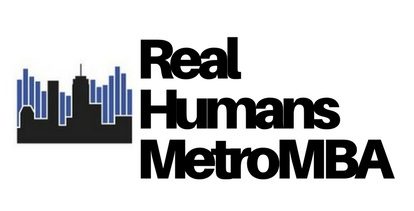
Of course, the history of a school may paint an overall setting, but it hardly tells the story of a current, individual student in the program. York Schulich MBAs stand out among many of Toronto’s stellar business schools, typically enrolling with a GMAT score of 660 and five years of professional work experience. As well, the York Schulich international community is well-represented, at 32 percent of the overall MBA class.
According to recent employment statistics provided by the school, Schulich MBAs typically earn about $91,500 CAD per year after earning their degree. In addition, about 89 percent of graduates earn employment just three months after graduating. Most grads earn roles in finance (23 percent), with marketing/sales (20 percent) and operations (18 percent) following closely.
To get a better feel for what life is really like for current York Schulich MBAs, we talked to a handful of students, including the manager of a long-standing luxury jewelry store, a theater major and performer, and a commercial lawyer looking for a brand new career challenge. Read on to see their stories and what the future may hold for life after an MBA.
Online MBA
Rutgers Online MBA Program Structure
The flexible Rutgers Online MBA degree begins in the spring, summer, or fall and can be taken either part-time or full-time. The full-time curriculum typically takes two years to complete, while the part-time usually takes three.
Curriculum
Enrolled students have the opportunity to specialize in four different career focuses: data analytics; digital marketing; investment and private wealth management; and strategic leadership. The 54 credit program consists of three foundational courses, 11 core courses, and three elective courses.
Class Profile
Students in the program are usually around 33-years old and have at least 11 years of professional work experience. The entire RSBC Online MBA class consists of at least 250 students, around 45 percent of which are female.
Tuition, Scholarships, and Financial Aid
Tuition for the Rutgers Camden Online MBA is currently $1,256 per credit, which does not include an additional $300 online course fee. Over 54 credits the total tuition is $67,824.
Additional fees apply to all tuition rates.
Admitted students are eligible for a number of merit-based scholarships, based on academic record and GMAT scores. The school reports that several full-time students also work on a part-time, hourly basis for faculty members, although RSBC does not offer formal research assistantships.
Enrolled students may complete the FASFA in order to apply for federal and private loans. International students are advised to seek private loan opportunities or inquire about aid opportunities with their local government.
Admissions
Applicants to the Rutgers University-Camden Online MBA program are required to submit the following: the online application form, a $70 application fee, original undergraduate and graduate transcripts if applicable, two letters of recommendation, a personal statement of the applicant’s career objectives, GRE or GMAT scores, and a current résumé. Applicants who hold a graduate degree, such as a JD, MD, or Ph.D., are not required to send their standardized test scores to Rutgers. In addition to these materials, international applicants must submit their TOEFL, IELTS or PTE scores and a statement of financial documentation. Indian applicants should note that the RSBC admissions committee considers Division I or II bachelor’s degrees, earned in three years at “A” grade, NAAC-accredited college in India to be equivalent to a four-year degree.
International applicants for the Online MBA must follow the same standards, along with submission of reputable TOEFL, IELTS, or PTE scores and a statement of financial documentation.
GMAT waivers are available for all RSBC programs for qualified students.
Application deadlines are as follows:
For domestic students, applications are due August 1 for Fall, December 1 for Spring, and May 1 for Summer. For international students, the deadlines are June 1 for fall and November 1 for spring.
From Disney to Starbucks, and More – Chicago News
Let’s explore some of the most interesting stories that have emerged from Chicago business schools this week.
Don’t Let Complacency Derail Your Career – Kellogg Insights
Carter Cast, the Northwestern Kellogg Clinical Professor of Innovation and Entrepreneurship and author of “The Right (and Wrong) Stuff: How Brilliant Careers Are Made — and Unmade,” writes about how “Version 1.0” employees who “lack curiosity and avoid taking risks” may find themselves professionally derailed.
“You have to find ways to stay fresh, especially in this day and age with the massive rate of change in technology. Disruption is everywhere.”
-
- Following a promotion, understand your supervisor’s expectations. “Ask the boss: ‘With this new job, what will I have done in two years to make you think that this was a good move to promote me? What are the key success metrics I should be aiming for?’”
- Increase your learning agility, or how quickly you develop and apply new skills by honing a discovery mindset. “[Force] yourself to acquire new skills that could help you down the road. If you work in sales, for example, you might take time to understand how the marketing team leverages its social marketing assets.”
- Identify your particular “area of innate resistance,” which Cast believes can stifle career growth if not addressed. He advises to spend more time being open to what you could learn than spending time and energy on what you already know.
- Cast advises Version 1.0 types to “adopt the ‘lean thinking’ mentality in order to refresh their thinking and test new ideas.”
- Networks that individuals can “rely on for information and assistance” are critical when jobs are constantly in flux. According to the article, “A strong, diverse network can help you bounce back after a challenge or shake-up.”
You can read more from the article here.
From Disney to Starbucks, Shewalter Doesn’t Shy Away From Big Challenges – Gies College of Business News
The U. Illinois Gies College of Business recently profiled Erik Shewalter (BADM ’14) who offers insights from his transition from Disney’s DTC streaming service to product management role at the Starbucks Rewards Innovation Team where he oversees strategy and innovation.
Shewalter spoke at length about a defining moment from his “once-in-a-lifetime” opportunity at the Disney-branded streaming service where he realized how much he loved the work he was doing.
“One of the defining moments of my career will forever be one of my first meetings with Kevin Mayer (Chairman of Direct-to-Consumer and International). I came to the meeting prepared, and because I was so immersed in the data, I was able to share specific insights that influenced decisions like the choice to include Star Wars and Marvel content in the streaming service.”
One major reason Shewalter left Disney for Starbucks was to work alongside his fiancée Naomi Liu (FIN, BADM ’15) who works in food innovation.
“There are so many little perks that materialize every day, such as sharing a commute, or even sharing our networks (which is critical for succeeding at Starbucks). Also, we love to surprise each other by bringing the other person drinks and snacks throughout the day.”
Check out the entire Gies College of Business News interview here.
Rogers Park and Edgewater Businesses Becoming More Sustainable with Loyola’s Help – Quinlan School of Business
With the support of Loyola University’s Quinlan School of Business Experiential Learning Communities in Solidarity program, professor Nancy Landrum orchestrated partnerships with Smack Dab Chicago and Edge of Sweetness Bakery for her Sustainable Business Management class.
Teams from Landrum’s class “performed waste, water, and simple energy audits and completed greenhouse gas inventories” and then organized “cash mob” events to attract customers to the businesses.
According to the article, “Edge of Sweetness saw a 216 [percent] increase in sales during the cash mob, and Smack Dab Chicago saw a 51 [percent] increase.”
Edge of Sweetness co-owner Kate Merrill (BSN ’96) writes, “I was delighted and surprised by how thorough they were during the initial evaluation. They were also very proactive about what they wanted to do with the projects, which was very nice to see.”
Smack Dab Chicago co-founder Axel Erkenswick adds, “I was interested to see how in-depth the students went into their audits, including going through our waste. Energy conservation is important to me, because it shows customers that we are more than a McDonald’s. We are community driven and put our efforts into helping the environment.”
Read more about the Quinlan program here.














